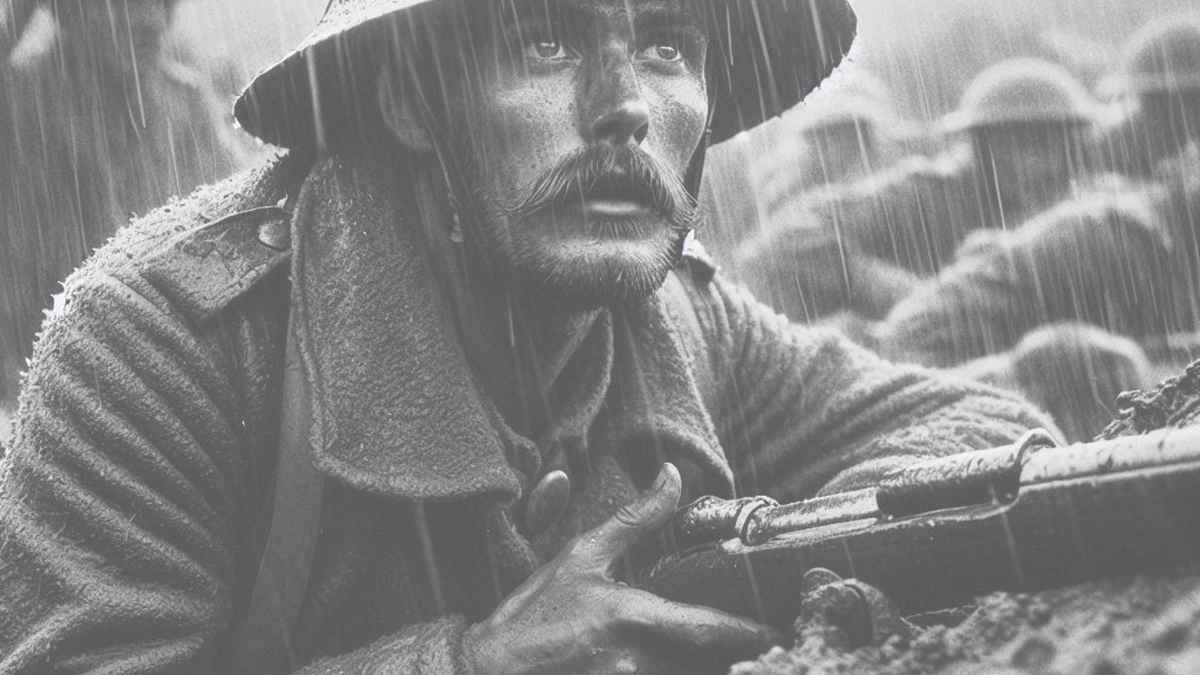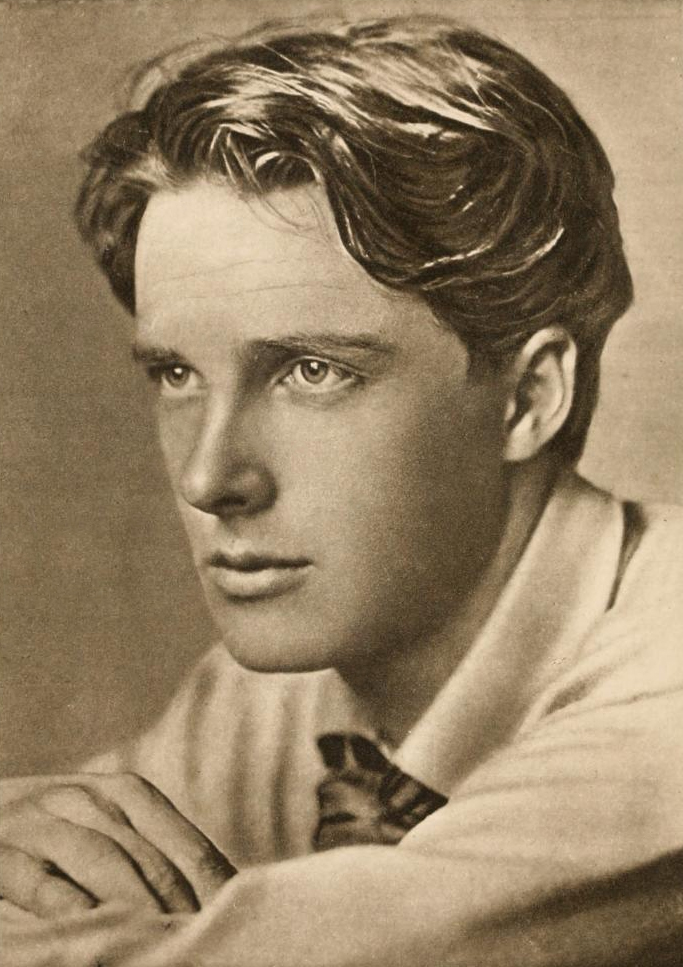Early 20th Century Idealism in Rupert Brooke’s Peace highlights the patriotic fervour and spiritual renewal that defined the initial stages of World War I. Composed in 1914, Brooke’s sonnet captures the moral and emotional climate of a generation that embraced war as an opportunity for redemption, purpose, and glory. Unlike later poets such as Wilfred Owen and Siegfried Sassoon, who conveyed the grim horrors of war, Brooke presents conflict as a purifying and noble enterprise. Through its structure, tone, and themes, Peace reflects the optimism, naivety, and cultural values of the era while offering insight into the mindset of young men drawn to the battlefield.
Idealism and Divine Purpose in Peace
From its opening lines, Peace portrays war as a divine opportunity for moral redemption. The sonnet begins with a prayer-like tone:
“Now, God be thanked Who has matched us with His hour,
And caught our youth, and wakened us from sleeping!”
Here, Brooke positions war as part of God’s plan, offering young men the chance to awaken from spiritual stagnation. The diction—“matched,” “caught,” and “wakened”—suggests purpose and salvation, as if war liberates the youth from an aimless existence. This reflects the early 20th-century belief in war as a noble crusade, a sentiment bolstered by British nationalism and a sense of moral duty to defend civilization against perceived barbarism.
Brooke’s invocation of God frames military service as not only patriotic but also spiritual. This aligns with the Edwardian ideals of sacrifice and duty, which were often underpinned by Christian values. The idea that war could cleanse and purify the soul permeates the poem, as seen in the metaphor:
“To turn, as swimmers into cleanness leaping.”
Here, the image of swimmers diving into purity suggests a kind of baptism, equating the act of going to war with spiritual renewal. The metaphor implies that war is an opportunity for absolution, an escape from the moral decay of civilian life.
A Critique of Modern Life
Brooke’s Peace is not merely a celebration of war but also a critique of what he perceives as the emptiness of peacetime existence. He dismisses the world as:
“…grown old and cold and weary;
Leave the sick hearts that honour could not move,
And half-men, and their dirty songs and dreary,
And all the little emptiness of love!”
In these lines, Brooke contrasts the vitality and purpose of soldiers with the moral and emotional decay of those who avoid service. The phrase “sick hearts” condemns those who lack the courage or sense of duty to fight, while “half-men” dehumanizes them, reducing them to figures of scorn. By aligning soldiers with honor and vigour, Brooke elevates military service as the ultimate expression of masculinity and integrity.
Furthermore, Brooke’s dismissal of “the little emptiness of love” reflects his rejection of trivial, individualistic pursuits in favour of collective sacrifice. Love, often a central theme in traditional sonnets, is portrayed here as hollow and fleeting compared to the grandeur of serving one’s nation. This disdain for romantic love in favour of patriotic love emphasizes the era’s belief in the primacy of duty over personal desires.
The Role of Death in Achieving Peace
The latter half of the poem shifts focus to the ultimate consequence of war: death. Brooke redefines death not as a tragedy but as a release, a gateway to eternal peace:
“Oh! we, who have known shame, we have found release there,
Where there’s no ill, no grief, but sleep has mending,
Naught broken save this body, lost but breath;
Nothing to shake the laughing heart’s long peace there
But only agony, and that has ending.”
Death is personified as both a friend and an enemy, a paradox that reflects Brooke’s belief in its dual role as a destroyer of life and a bringer of eternal peace. This idealization of death aligns with pre-war notions of heroism, where dying for one’s country was seen as the highest form of honor. The euphemistic portrayal of death as “sleep” emphasizes its restorative qualities, offering rest to the weary and absolution to the guilty.
The poem’s portrayal of death as an ennobling force contrasts sharply with the later works of Owen and Sassoon, who expose its brutal realities. However, Brooke’s perspective reflects the widespread optimism of 1914, when few could foresee the unprecedented horrors of trench warfare.

Historical Context and Legacy
Written during the euphoric early days of World War I, Peace captures the spirit of a generation that saw war as a moral crusade. At the time, many young men shared Brooke’s view, embracing the war as a chance to prove their worth and secure their legacy. This idealism was fuelled by propaganda, nationalistic fervour, and a lack of understanding about the true nature of modern warfare.
However, as the war progressed and the realities of trench combat became apparent, this romanticism gave way to disillusionment. Brooke’s untimely death in 1915 spared him the horrors of the Western Front, preserving his idealism in a way that later poets like Owen and Sassoon could not.
Despite criticism of its naivety, Peace remains a significant work for its historical and cultural insights. It serves as a reminder of the optimism that characterized the early months of the Great War and the values that drove many young men to enlist.
Takeaways:
- Reflection of Early 20th-Century Idealism: Patriotic fervor and optimism of the initial phase of World War I.
- War as a Path to Spiritual Renewal: War as a divine opportunity for moral and spiritual redemption.
- Critique of Civilian Stagnation: Perceived emptiness and moral decay of civilian life.
- Death as Noble and Peaceful: A heroic release, emphasizing sacrifice and eternal peace.
- A Testament to Naive Optimism: Early idealism of a generation untouched by the realities of modern warfare.
Additional Reading
Critical Appreciation of Emily Dickinson’s I Cannot Live With You
Emily Dickinson’s I Cannot Live With You is a masterpiece of emotional depth and intellectual rigor. This critical appreciation delves...
Read MoreInnocence and Experience: William Blake’s Concept of Contraries
In his attempt to communicate his essential divine vision, William Blake created a poetic world where images are realized in...
Read MoreKubla Khan by Coleridge : A Fragment or A Coherent Whole
Kubla Khan by Coleridge records an opium-induced dream, interrupted by a visitor from Porlock. The poem has been taken to...
Read More



